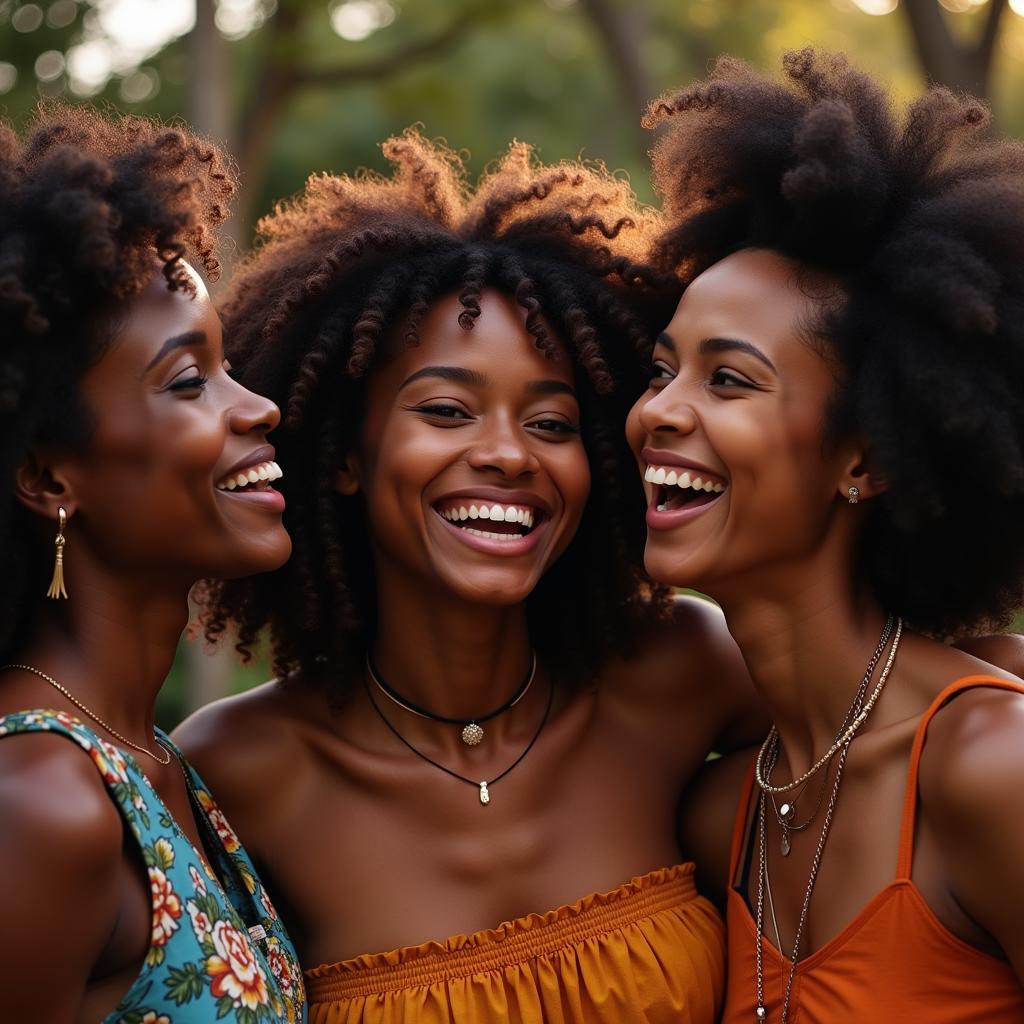Exploring the African Goddess of Nature
The captivating world of African mythology is rich with powerful deities, including the revered African Goddess Of Nature. These goddesses represent the life-giving force of the natural world, embodying fertility, abundance, and the delicate balance of the ecosystem. Let’s delve into the fascinating stories and symbolism surrounding these important figures.
Who Are the African Goddesses of Nature?
Across the diverse cultures of Africa, numerous goddesses are associated with nature. Their names and stories vary, reflecting the unique beliefs and traditions of each community. These goddesses often hold dominion over specific aspects of nature, such as the earth, water, or sky. Some are seen as protectors of wildlife, while others are associated with agriculture and the harvest. Understanding these diverse roles provides a deeper appreciation for the interconnectedness of African spirituality and the natural world. You might find some similarities with the african earth goddess.
Ala (Igbo Goddess of the Earth)
Among the Igbo people of Nigeria, Ala is revered as the goddess of the earth and fertility. She is considered the source of all life and the guardian of morality. Ala is deeply connected to the land, and her shrines are often located in sacred groves or near prominent natural features. Her role in maintaining balance and harmony within the community underscores the importance of respecting the natural world.
The Power and Influence of Nature Goddesses
The influence of these goddesses extends far beyond mythology. They play a vital role in shaping cultural practices, social structures, and artistic expression. Traditional ceremonies and rituals often honor these deities, seeking their blessings for a bountiful harvest or protection from natural disasters. Their images adorn artwork, sculptures, and textiles, serving as constant reminders of their power and presence. For those interested in feline deities, check out this article on african cat gods.
Asase Ya (Ashanti Goddess of Earth and Fertility)
Asase Ya is a prominent figure in the Ashanti pantheon of Ghana. She is the earth goddess, responsible for fertility and the abundance of crops. Thursdays are considered sacred to Asase Ya, and on this day, the land is left undisturbed as a mark of respect. This practice reflects the deep reverence for the earth and its life-sustaining power. Did you know that Isis, a well-known Egyptian goddess, also has African roots? Learn more about the african god isis.
Modern Relevance of the African Goddess of Nature
Even in the modern era, the reverence for these goddesses continues to resonate. Their stories and symbolism provide a powerful connection to ancestral traditions and cultural heritage. Furthermore, they offer a valuable perspective on the importance of environmental stewardship and sustainable living. The respect for nature ingrained in these beliefs is particularly relevant in today’s world, as we face the challenges of climate change and environmental degradation. If you’re expecting twins, you might be interested in these african american twin baby names.
Professor Adeyemi Olajide, a renowned scholar of African mythology, states, “The African goddesses of nature are not simply figures of myth. They embody the profound connection between humanity and the natural world, a relationship that remains essential for our survival and well-being.”
Dr. Fatima Mokoena, a cultural anthropologist, adds, “These goddesses offer a powerful lens through which to understand African cosmology and the deep respect for nature that permeates many traditional societies.” Looking for unique names? Explore some african grey parrot girl names.
Conclusion
The African goddess of nature represents a powerful and enduring connection to the natural world. Exploring these diverse figures provides valuable insights into African spirituality, cultural practices, and the ongoing relevance of traditional beliefs in the modern era. By understanding and appreciating these goddesses, we can gain a deeper respect for the environment and the vital role it plays in our lives.
FAQ
- What are the common characteristics of African nature goddesses?
- How are these goddesses honored in traditional ceremonies?
- What is the significance of nature goddesses in modern Africa?
- Are there any specific symbols associated with these goddesses?
- How do these goddesses relate to other deities in African mythology?
- Where can I find more information about African mythology?
- What are some examples of contemporary art inspired by these goddesses?
Need support? Contact us 24/7:
Phone: +255768904061
Email: [email protected]
Address: Mbarali DC Mawindi, Kangaga, Tanzania.


